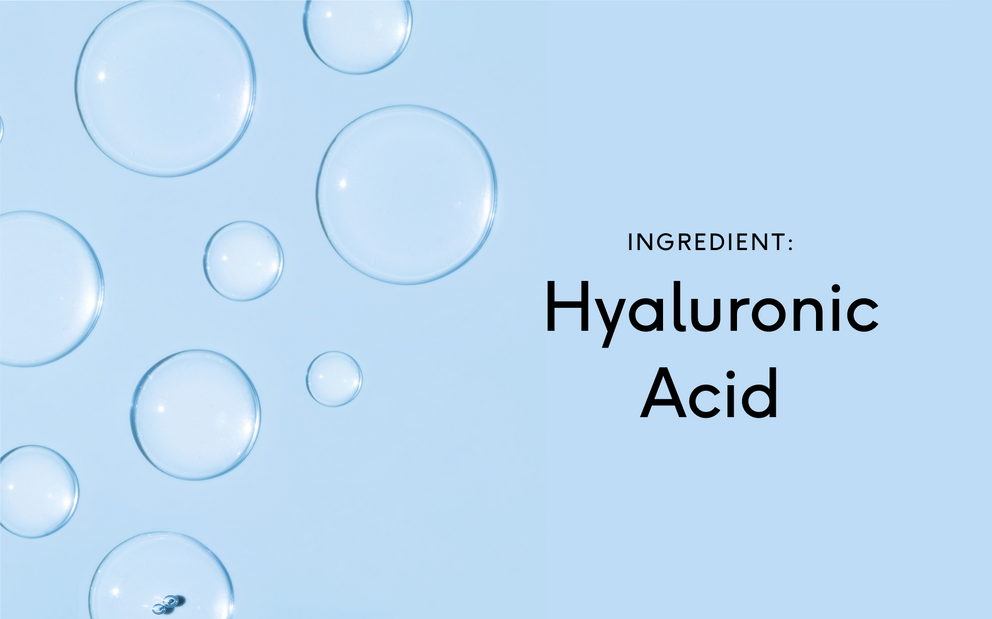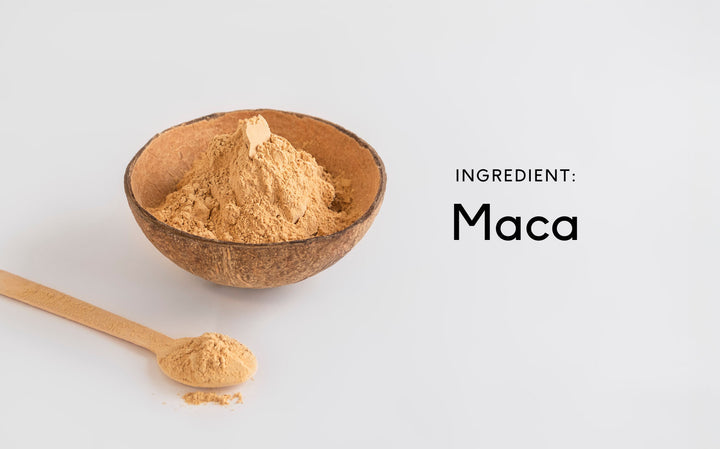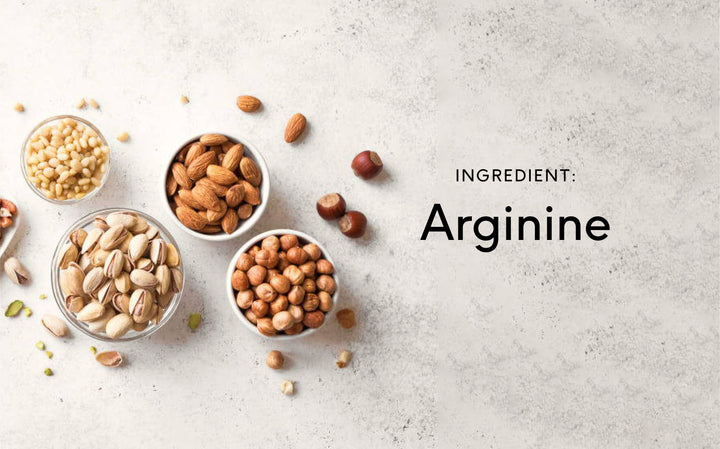Learn About Hyaluronic Acid in 5 Minutes
Table of contents

What is hyaluronic acid?
Also known as hyaluronan, hyaluronic acid is a polysaccharide molecule that makes up a significant amount of the connective tissue in your body. While the human body naturally produces hyaluronic acid, concentrations of this important molecule can be reduced by ageing and other factors. Nevertheless, hyaluronic acid remains an essential component of human connective tissue, so supplementation with this substance may be useful in a variety of different situations.
Is hyaluronic acid water-soluble or fat-soluble?
Hyaluronic acid is highly soluble in water, which means that it absorbs into your system rapidly. Like all water-soluble compounds, your body also excretes hyaluronic acid relatively quickly.
Where can hyaluronic acid be found naturally? Common sources of hyaluronic acid:
The only known natural source of hyaluronic acid is rooster combs. Thankfully, it is very rare to derive hyaluronic acid from this source these days, and instead, this substance is usually synthesised in laboratory environments using bacteria.
What is the recommended daily value for hyaluronic acid?
While it is an essential component of your body’s connective tissues, hyaluronic acid is not recognised as an essential vitamin or mineral. Therefore, there is no nutrient reference value (NRV) for hyaluronic acid.
Can you absorb enough hyaluronic acid from food?
Hyaluronic acid is not present in food. It is, therefore, impossible to derive the hyaluronic acid your skin and connective tissues need from food sources.
Why is hyaluronic acid necessary for your body?
In most cases, your body produces all the hyaluronic acid it needs using natural processes. In the event that your body does not produce enough hyaluronic acid or increased concentrations of this substance are desired, supplementing with hyaluronic acid may be deemed necessary to maintain basic lubrication functions in the body.
Whether it is naturally produced by your body or ingested in supplements, hyaluronic acid is most concentrated in the fluids that keep your eyes and joints lubricated. Your body also uses hyaluronic acid to redirect blood flow during the wound healing process, and this substance binds with water in the skin to promote proper moisture flow through dermal layers.
Functions of hyaluronic acid
- Connective tissue component: Hyaluronic acid is an essential component of human connective tissue. Without enough hyaluronic acid, your joints, ligaments, and other connective tissues will cease to function effectively.
- Blood flow redirecting: To heal wounds properly, your body needs to redirect blood away from the site of the wound. This process is accomplished by deploying hyaluronic acid to the relevant blood vessels.
- Binds with water in skin: Hyaluronic acid molecules of all sizes bond with water molecules in your skin. These molecules move water throughout your dermal layers to spread moisture to the areas where it is needed.
Feel's Beauty Probiotic+ contains 100mg of hyaluronic acid, shown to provide essential moisture to the surface of the skin.
When should you take hyaluronic acid?
Hyaluronic acid is not considered to be an essential nutrient, so there is no definitive answer regarding when you should consider yourself deficient in this substance. Since hyaluronic acid is necessary for proper connective tissue maintenance and regeneration, however, decreased levels of this substance could lead to joint-related conditions. Low levels of hyaluronic acid could also increase wound healing time and lead to decreased moisture levels in your skin.
How long do you need to take hyaluronic acid to start experiencing its benefits?
Since hyaluronic acid is a water-soluble compound, it absorbs into your system relatively quickly. Except in cases of extreme deficiency, you should start noticing the beneficial effects of orally ingested hyaluronic acid within 2-3 days.
Consistency is key and our research recommends taking your Feel supplements for at least 3 months to allow your body to adjust and provide you with the desired benefits.
How long does it take for your body to digest/absorb hyaluronic acid?
As a water-soluble molecule, hyaluronic acid should fully absorb into your system around 24 hours after ingestion.
How long does hyaluronic acid stay in your body after you take it?
Since hyaluronic acid is water-soluble, your body will excrete this substance within 2-3 days. Therefore, it is necessary to continue ingesting hyaluronic acid regularly to enjoy this compound’s beneficial effects.
Is hyaluronic acid an antioxidant?
According to limited research, hyaluronic acid may exert direct antioxidant activity in the body. Moreover, by promoting proper joint health and lubrication, hyaluronic acid may also improve the effectiveness of other antioxidants.
Can you overdose on hyaluronic acid? What are the effects?
There are no data indicating that it’s possible to overdose on hyaluronic acid. Your body naturally produces this compound, and hyaluronic acid is generally considered to be safe.
Does hyaluronic acid dissolve, flush out, or build up in the body?
After dissolving in water and spreading throughout your system, any excess hyaluronic acid that you ingest orally will be flushed out of your body within 2-3 days.
Can you take hyaluronic acid during a diet?
Since botanical (bacteria-synthesised) hyaluronic acid is vegan and cruelty-free, this compound does not conflict with any dietary restrictions.
Are there synthetic forms of hyaluronic acid?
The vast majority of hyaluronic acid products on the market are synthesised from bacteria in laboratory environments.
Absorption rate of synthetic hyaluronic acid
When ingested orally, synthetic hyaluronic acid appears to have the same absorption rate as animal-derived forms of this compound.
Why might natural forms of hyaluronic acid be better?
There are no advantages to animal-derived forms of hyaluronic acid. On the contrary, harvesting hyaluronic acid from natural sources harms or kills animals without offering any additional benefits.
How to take hyaluronic acid
Hyaluronic acid can be taken orally or applied topically to the skin. Evidence suggests that hyaluronic acid has higher bioavailability when ingested orally.
Hyaluronic acid trends in medicine
In a 2017 study, researchers found that orally-ingested hyaluronic acid reduced wrinkles better than a placebo during a 12-week clinical research period. A 2019 study involving 156 test subjects showed similar results by reporting that participants who received hyaluronic acid experienced better knee arthritis recovery than participants in the control group.
Sources
1. Oral hyaluronan relieves wrinkles: a double-blinded, placebo-controlled study over a 12-week period
2. The effectiveness of high molecular weight hyaluronic acid for knee osteoarthritis in patients in the working age: a randomised controlled trial
3. Hyaluronic acid: A key molecule in skin aging
4. Hyaluronic Acid: Molecular Mechanisms and Therapeutic Trajectory
5. Recent advances in hyaluronic acid based therapy for osteoarthritis
6. Oral Hyaluronic Acid Supplementation for the Treatment of Dry Eye Disease: A Pilot Study
7. Physiochemical properties and application of hyaluronic acid: a systematic review























































 Back
Back





